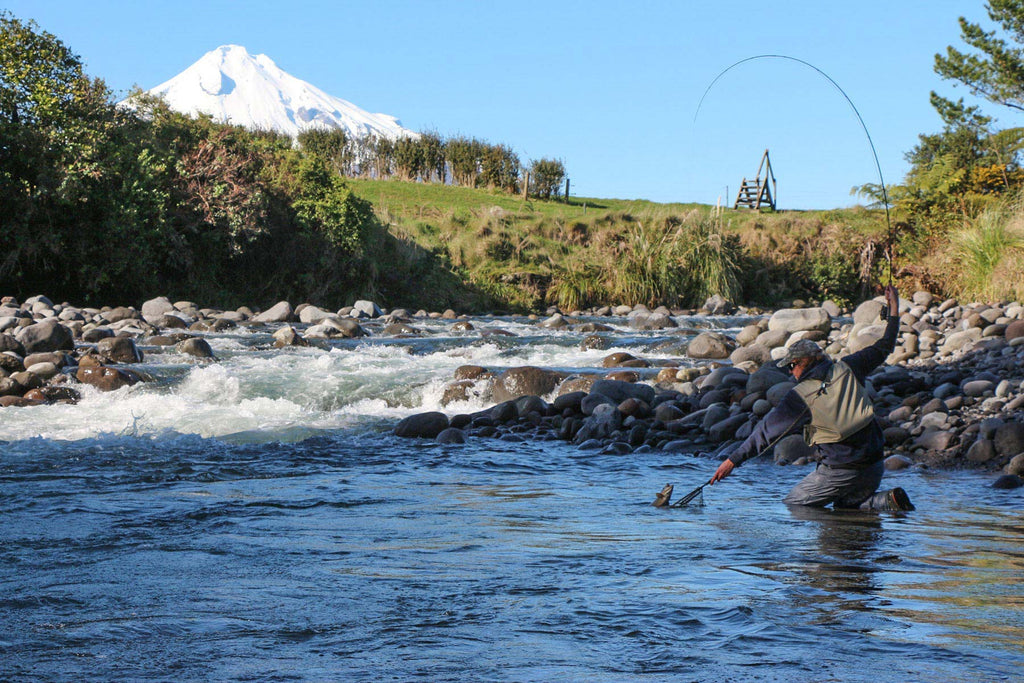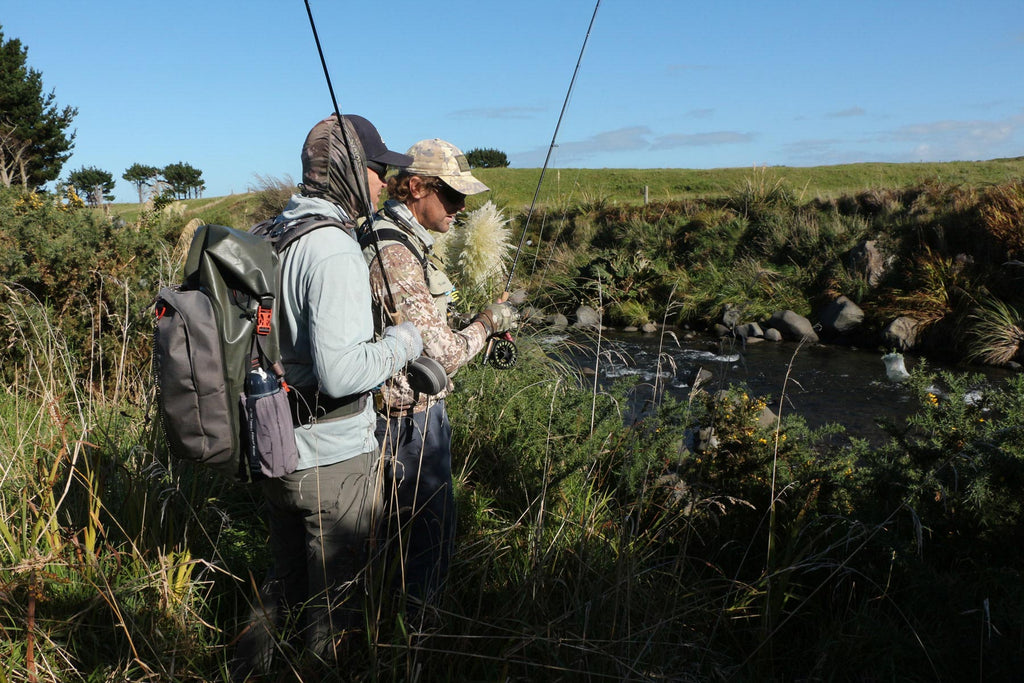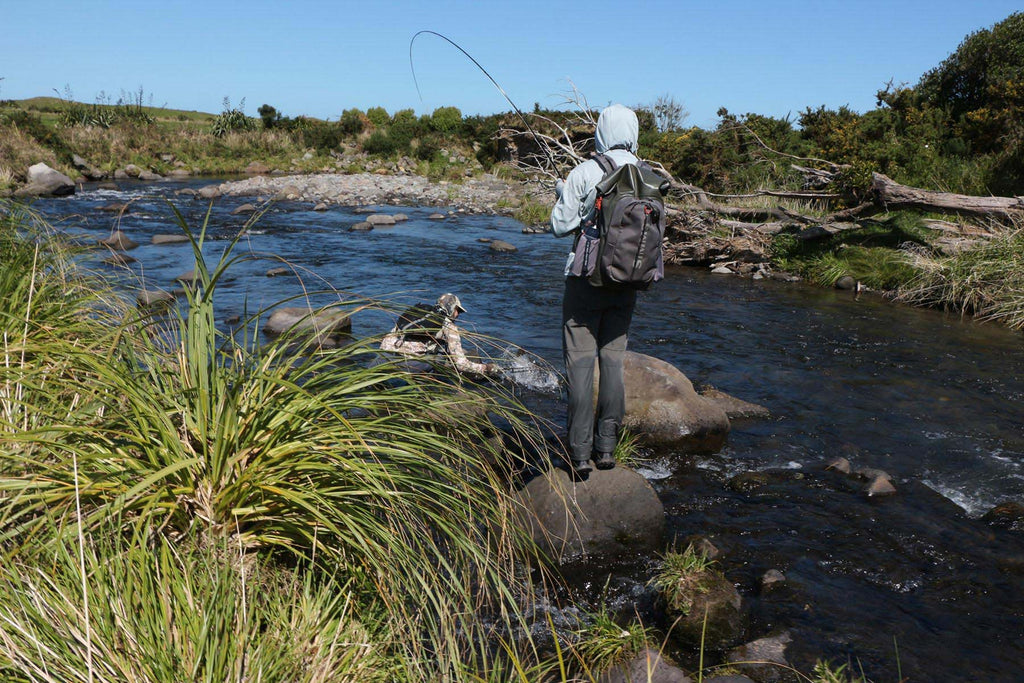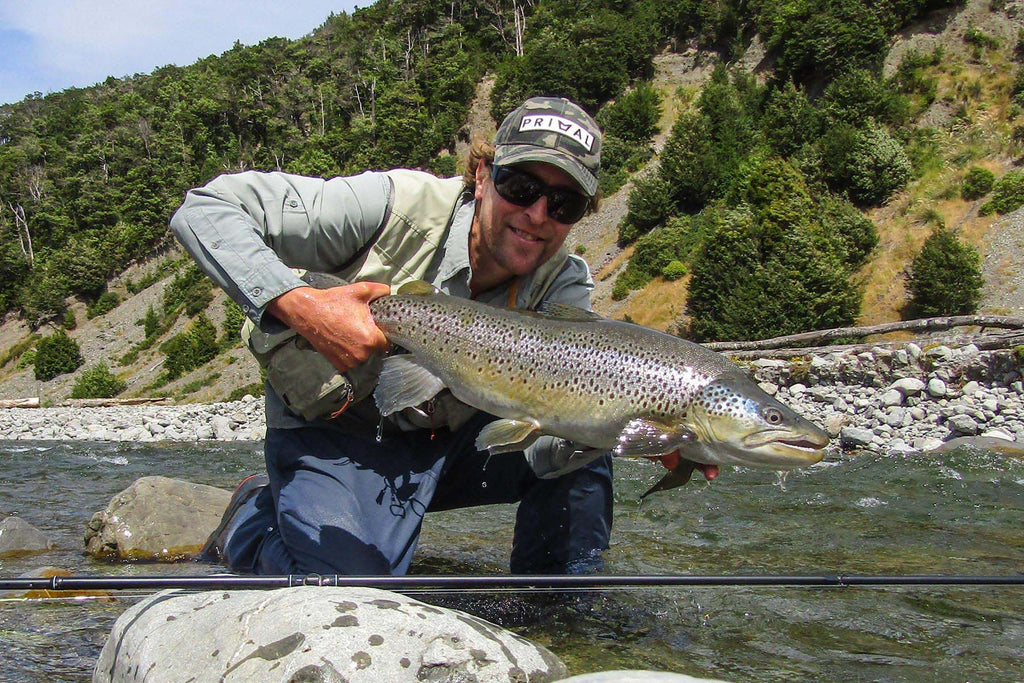Fly Fishing Time Management
Here are some thoughts on how to more efficiently manage your day fly fishing to optimise success using planning and time management strategies. Over the years, guiding and catering to anglers with different abilities has made me think about time management on the water and to take it seriously.
These are some key factors to think about in managing your time and planning your next day's fishing.
ORGANISATION OF FLY FISHING GEAR
If you have a time set for a mate to pick you up in the morning be ready by that time. No one likes waiting around in the morning for someone to get their gear organised.
If you can try to get your gear ready the night before and when you finish for the day, spend the time putting it in a place where it's organised and ready to grab for next time. Don't forget that reel!

WHAT’S THE LIGHT DOING?
Light is very important and can play a major role in a successful day's fishing. For me, I plan much of my guiding around it. If there's light on the water it is going to be a lot easier to spot, catch fish and save time. Also, a lot of clients wish to see the fish they cast to (whether this is a good thing or not is another article!).
Think about the sun angle and geography of the stretch of water you intend to fish in the morning to determine what place to start your day's fishing. If you find yourself moving through productive water faster than you thought and the sun is still low, slow down, maybe blind fish a little more water or stop for a break or lunch. That twenty minute break will let more sun come onto the water for that pool you know is around the next bend.
CHOOSING THE RIGHT FLY
It is surprising how much of a dilemma and how much time some people take choosing a fly. It's quite simple really. Be observant. When first turning up on the water check to see if there's any airborne insect activity or insects on the surface film. If there are fish rising choose a dry / emerger fly pattern similar to these insects.
If there's no airborne activity or fish rising have a look under a few rocks in the nearest rapids, choose a nymph pattern that resembles the nymphs you find. Change the pattern’s weight for different depth scenarios.
Don't forget attractor patterns if your more natural patterns fail.

WHOSE TURN IS IT TO FISH?
You would assume this should be fairly uncomplicated but believe me it isn't! I myself have argued with friends when I was young and when guiding I have witnessed some very ugly displays between a few of my clients, men in their fifties! Arguing about who's turn it is is hardly a good use of time!
Here are a few words of wisdom when it comes to this conundrum.
Decide who is up first before you hit the water. This person will have first turn whether it is to a sighted fish or just blind fishing a run or pool. If this person hooks, catches or casts to a sighted fish it then becomes the next person's turn. This person will start off where the last angler left in the same run. If he hooks, catches or casts to an actively feeding sighted fish, it becomes the next person's turn, but if he doesn't he gets first turn on the next fresh run, and so on.
You need to know this is not a golden rule, nor is it even an ethic. It's just what I believe is the right way to go about knowing whose turn it is, learnt from over three decades of fly fishing.
If you are happy catching one fish then spending the whole of the day watching your mate catching fish, that's up to you!
HOW MUCH TIME SHOULD YOU SPEND TRYING TO CATCH A FISH?
Is it really worth spending an hour and half casting to that two pound trout? Do you really need to prove to your mate that you can catch it? Probably not. If there is a lot of water ahead of you, you are likely wasting your time and being a bit selfish.
Your mate is probably getting a bit bored and would like some fishing himself, and he is likely to be getting pissed off after you've tied on the 10th fly! Maybe leave this style of fishing for when you're alone.
Of course if it's a big fish then maybe spending more time is valid. Ask your mate if he is happy waiting.
SPLITTING UP TO FISH
Working as a team to me is more fun and if you're with an angler who knows what he's doing it is no question more effective than fishing alone. Also if you split up and your mate walks ahead to fish this adds risk. He will spook more fish and many situations require two anglers for there to be successful captures.
I personally would rather not fish with a person that walks ahead on small to medium sized backcountry rivers. What's the point of going fishing with someone? Take enjoyment in watching your mate catch a fish, don't get jealous even if he's three up on you.

SWAPPING FLY RODS
It's ok to swap rods! If one person has a more suitable rig for a situation use that rod. This will save a substantial amount of time. I have heard people comment "I don't like the way that rod casts", my reply to this would be "Your casting and fishing will improve if you know how to cast a range of rods" or " consider this a new challenge".
EFFECTIVE BLIND FISHING IN GOOD HOLDING WATER
Identifying the best holding water, and blind fishing it methodically and efficiently will save time and increase success. Don't bother blind fishing every inch of the pool if you have a lot of water ahead of you, again this will be boring for your mate.
When nymphing make sure you're using the right weight fly to get to where the fish are. It's no good using an unweighted nymph in a deep pool when the fish are on the bottom. Also use a sliding indicator so you can change for different depth scenarios.
LEADER INTEGRITY AND TIPPET CHOICE
Ever had a time when you have been casting perfectly covering some awesome water but not hooking anything? You decide to have a look at your fly and realise there isn't one there!
Oh no! How long has it been like that? Thirty seconds or thirty minutes?! Whatever length of time, it's been a waste of time if you want to catch a fish. Not all brands of tippet are good. Make sure you pick a line that is strong and has good knot strength. Also constantly check your leader, knots and tippet integrity by pulling a fly against an arm of a stripper guide but don't pull too hard and over-tighten your knots.

FLY FISHING FITNESS & EXPERIENCE
Your fitness and fly fishing experience will determine how much water you can cover in a day. In general, if you are fit you will likely be able to cover more water in a day and still have enough time to make it back to the car. If you're not so fit you may find it more enjoyable just fishing a short stretch of water and spend your time fishing it more thoroughly.
Experience is hard to beat. I have often been surprised watching very fit novice anglers struggling to wade up a river, whilst an unfit experienced angler can move upstream with ease. A wading staff once you become familiar with how to use them will help save time wading and be safer.
SELECTING THE RIGHT FLY FISHING GEAR
Feel a bit cold after you fell in? Where's that shell rain jacket to keep the cold wind off? Oh it's back in the car! Just a fifteen minute walk back, just a half an hour waste of time!
Take appropriate clothing to suit the conditions. This is also a safety precaution. Let's not get hypothermia. Also remember that first aid kit, and PLB if you're planning to fish an area that's isolated.
Also take appropriate gear to suit the water you intend to fish. It's no good taking a spey rod to fish a metre wide crystal clear spring creek! Another waste of time!
WEATHER CONSIDERATIONS FOR FLY FISHING
This seems obvious but take into consideration the weather forecast.
Where are we going to drive today so we get more time on the water? Why fish a spot that will be in torrential rainfall by midday and have rising river levels when on the other side of the mountain or ranges there are clear skies and perfect fishing conditions? Also which direction is the wind going this day? Seasonal changes and trout behaviour need to be thought about.
In conclusion, all these factors will play a role in how your day will pan out but there is no one right way how to use your time. The way you plan and how you enjoy your time on the water is solely up to you. It's not just about catching fish, but if we have this knowledge in the back of our minds I think maybe you will likely have more enjoyment - and catch more fish!

ABOUT ADAM PRIEST OF TNT GUIDING:
Adam Priest operates TNT Guiding and caters for all levels of anglers, from beginners to expert, and has over 30 years fly fishing experience and over 15 years guiding experience in the tourism industry. Adam is Taranaki's only qualified, fully inducted New Zealand Professional Fishing Guide Association member.
